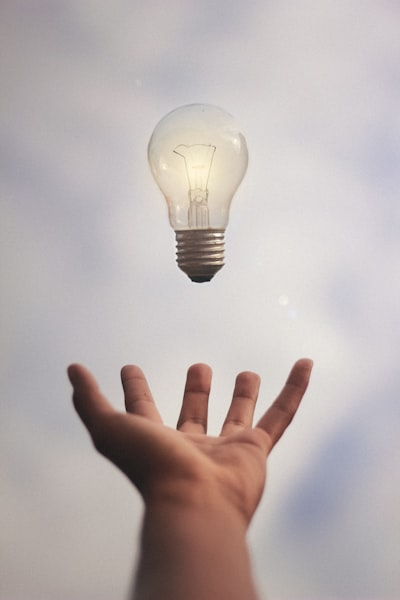Learn How to Get Rid of Dehydration Headaches Now!
Picture this: you wake up feeling like you got hit by a truck. Your head is pounding like migraine-o-clock and you can barely open your eyes. You might be tempted to reach for that bottle of painkillers, but wait! What if we told you that the solution to your headache may be as simple as drinking some water? That's right, dehydration headaches are real and they're a total buzzkill. In today's how to piece, we'll break down everything you need to know about how to get rid of dehydration headaches - from what causes them to how to send them packing fast! We'll also give you six practical tips and tricks including how to spike your water intake, and what IV drink product is likely the best short term fix that will have you feeling better in no time. So sit back, relax, and let's get hydrated!
Understanding Dehydration Headaches
So, you've got a pounding head, huh? Well, before you reach for that bottle of painkillers, let's talk about understanding the types of headaches. These nasty little buggers occur when your body is running low on fluids and electrolytes. I'm talking about serious dehydration here, not just skipping one glass of water. You know, the kind that comes after sweating like a pig at the gym or experiencing a bout of vomiting or diarrhea. Trust me, these headaches are no joke - and they're well beyond your typical tension headaches. They can make your head throb like it's trying to burst out of your skull. Ouch!
Causes of Headaches
So, what causes these pesky dehydration headaches? Well, it's pretty straightforward. Not drinking enough water, even mild dehydration, is one of the main culprits. Your body needs H2O to function properly, and when you don't give it enough, it can retaliate with a headache. Another cause is excessive physical activity. You know, when you work up a sweat and forget to replenish your fluids? Yeah, that can lead to a throbbing headache too. Oh, and let's not forget certain medications. They can also contribute to those annoying dehydration headaches. So, drink up, take it easy on the workouts, and be mindful of your meds. That should help keep those mild dehydration headaches at bay.
Dehydration Symptoms and Diagnosis
So you think you might have a dehydration headache? Well, it's not exactly rocket science to figure that one out. If you're feeling thirsty, have a dry mouth, and are as tired as a sloth on a hot summer day, then congratulations – you might just be experiencing the symptoms of dehydration headaches! But wait, there's more! These delightful headaches can also make you feel dizzy and lightheaded (almost like a migraine), just to keep things interesting. And here's the best part – doctors diagnose dehydration headaches by simply looking at your symptoms and asking about your medical history. No fancy tests or complicated procedures needed. So, if you're experiencing these lovely thirst, dry mouth, and fatigue sensations, it's time to take a break, chug some water, and get yourself rehydrated. But just so we're all aware, let's explore the different types of headaches that MIGHT be masquerading as this headache below. After all, knowing what you're dealing with is the first step towards finding relief. So, let's delve into a few potential imposters:
- Tension Headaches: These are the workaholics of headaches – often triggered by stress, anxiety, or poor posture. They typically cause a dull, pressure-like pain around your temples or the back of your head. Unlike dehydration headaches, tension headaches are not directly linked to dehydration and can be relieved through relaxation techniques, proper posture, and stress management.
- Migraines: Ah, the granddaddy of all headaches. Migraines are often accompanied by intense throbbing pain, sensitivity to light and sound, nausea, and even visual disturbances. While dehydration can trigger migraines in some individuals, they are a complex neurological condition with various triggers and require specific treatment approaches.
- Sinus Headaches: Ever felt like your head was being crushed from the inside? That's what sinus headaches feel like. These headaches are caused by inflammation in the sinus cavities, often due to allergies or a sinus infection. They can cause pain and pressure around your eyes, cheeks, and forehead, making it easy to mistake them for dehydration headaches. Treating the underlying sinus issue is key to finding relief.
Now that we've explored some possible imposters, let's focus on how to specifically tackle dehydration headaches. When you're experiencing that throbbing pain and other telltale signs of dehydration, it's time to act.
Can Dehydration Trigger Headaches?
Dehydration has the potential to trigger headaches in certain individuals. When there is a lack of water in the body, it can lead to decreased blood volume and increased blood pressure, which can result in headaches. Ensure you stay hydrated to minimize the risk of dehydration headaches.
The Link between Dehydration and Headaches
So, you're probably wondering what the heck dehydration has to do with headaches. Well, let me tell you, it's more than just a coincidence. You see, when you don't drink enough water, your body gets all out of whack, and that can mess with your brain. Yeah, I know, sounds crazy, right? But it's true. Dehydration can cause some serious changes in your brain, which can lead to pounding headaches that make you feel like your head is about to explode.
But wait, there's more! Dehydration doesn't just mess with your brain, it also throws off your electrolyte balance. And guess what? That imbalance can contribute to those pesky head pain too. So, if you're feeling a throbbing pain in your noggin, it might be a good idea to chug a glass of water and get yourself rehydrated. Trust me, it's worth it to avoid the agony of a dehydration headache.
How to Effectively Manage a Dehydration Headache
Let's talk about how to effectively manage a dehydration headache. First and foremost, it's crucial to make sure you're drinking enough water. Hydration is key to keeping those pesky headaches at bay. Another helpful tip is to replenish your electrolytes. This can be done through sports drinks or even eating foods that are naturally high in electrolytes. If you're in immediate need of relief, try applying a cold compress to your head. This can provide a soothing sensation and help alleviate the pain. So remember, stay hydrated, replenish those electrolytes, and give yourself some relief with a cold compress. Additionally, a person may take acetaminophen to help manage the pain of a dehydration headache.
Immediate Remedies for Relief
So, you're in the midst of a dehydration headache and you need immediate relief? No worries, I got your back! Here are some quick fixes that can help you bounce back from that pounding head. First up, grab a glass of water and chug it down. Hydration is key, my friend! Next, find a cool and dark room to rest in. It'll give your noggin a break from the chaos. And hey, why not give yourself a little self-love? Massage those temples or the back of your neck for some sweet relief. Ahh, doesn't that feel better already? Also, a great short term boost might be to [INSERT PRODUCT USP]
When to Seek Medical Help
So, you're dealing with dehydration headaches and they're starting to become a real pain in the...head. Well, listen up because I'm about to give you the lowdown on when it's time to seek medical help for chronic dehydration. Now, if your dehydration headaches are severe or just won't quit (or if they just seem to be too much), it's time to call in the experts or hit the bricks to your urgent care around the corner. Trust me, they've got tricks up their lab coats to help you out. Sometimes, things can get really serious and you might need a little more than just chugging water. In cases of severe dehydration, they might even hook you up to some fancy intravenous fluids.
Six Practical Tips to Get Rid of Dehydration Headaches
Alright, let's get rid of those pesky dehydration headaches! Here are six practical tips that will have you feeling hydrated and headache-free in no time. First, make sure to guzzle down some H2O. Increasing your water intake or using a proven electrolyte drink formula is key to preventing dehydration headaches. Next, skip the caffeine. Diuretics like coffee can leave you high and dry, so opt for hydration-friendly alternatives. Another tip is to load up on foods rich in electrolytes, like potassium and magnesium. These bad boys will keep those dehydration headaches at bay. Don't forget to stay hydrated during physical activity too. Sweating it out without enough fluids can trigger a headache. And while we're on the topic, let's talk about alcohol. Avoid the hangover and subsequent dehydration headaches by keeping the booze to a minimum. Last but not least, keep an eye on your fluid intake throughout the day. Monitoring how much water you're getting ensures you stay properly hydrated and headache-free. So drink up and say goodbye to those dehydration headaches!
Tip 1: Increasing Water Intake
Alright, enough with the dehydration headaches already! We get it, they suck. But here's a little secret: you can actually prevent these pesky head bangers by simply drinking more water. It's not rocket science, folks. Just guzzle down at least 8 cups of water a day, as recommended by experts at Harvard Medical School, and watch those headaches vanish like a bad flu. Oh, and don't forget to carry around a water bottle wherever you go. Set reminders if you have to. Trust me, your head will thank you later. So, bottoms up and say goodbye to those nasty dehydration headaches!
Tip 2: Balanced Electrolytes
Who knew that an imbalance of electrolytes could lead to dehydration headaches? Well, apparently, sodium, potassium, and magnesium are the MVPs when it comes to regulating fluid balance in your body. So if you want to kick those pesky headaches to the curb, consider consuming electrolyte-rich foods and drinks like sports drinks or coconut water. Don't forget to keep yourself adequately hydrated throughout the day to maintain the right levels of electrolytes. Oh, and steer clear of excessive alcohol and caffeine - they won't do you any favors. In severe cases, intravenous fluids might be necessary to replenish those electrolyte levels. Trust me, you'll feel much better!
Tip 3: Healthy Diet and Lifestyle
Let's talk about tip number three, shall we? So, staying hydrated is key to avoiding those pesky dehydration headaches. Trust me, you don't want to mess with those. And while we're on the subject, steer clear of sugary and caffeinated drinks. They won't do you any favors in the hydration department. Instead, opt for a balanced diet filled with nutrient-rich foods. Your body will thank you, and so will your head. Oh, and don't forget to get moving! Regular physical activity helps regulate your hydration levels and keeps those headaches at bay. And if all else fails, reach out to a healthcare professional. They've got your back, or rather, your head.
Tip 4: Regular Exercise
Sure, forget the whole "working out" part. Who needs exercise anyway? But here's a little secret: regular exercise can actually help with dehydration headaches. How, you ask? Well, when you get moving, your blood starts pumping, promoting better circulation and hydration throughout your body. Plus, exercise releases those feel-good endorphins, which can help reduce stress and tension that may contribute to those pesky headaches. Just make sure to stay properly hydrated before, during, and after your workout to prevent dehydration headaches. And if you're not into intense workouts, low-impact exercises like yoga or swimming can still do the trick. But hey, always check with a healthcare professional before starting any new exercise routine. Trust me, they know best.
Tip 5: Avoiding Triggers
Alright, let's talk about avoiding triggers for dehydration headaches. So, we know that dehydration is a common culprit behind these head pounders. One way to steer clear of these painful episodes is by avoiding or limiting triggers like caffeine, alcohol, and salty foods. It's also essential to drink plenty of water and munch on high-water-content foods to keep dehydration at bay. But, if you still end up with a dehydration headache, don't fret! Over-the-counter pain relievers or natural remedies like peppermint oil or ginger could come to the rescue. Remember, staying hydrated throughout the day, especially when you're active or in a hot climate, can help prevent dehydration headaches from hijacking your day. Stay sharp and keep the fluids flowing!
What are the Long-term Effects of Repeated Dehydration Headaches?
Long-term effects of frequent dehydration headaches include cognitive impairment, decreased brain function, kidney problems, and high blood pressure. Prevent dehydration headaches by staying hydrated and avoiding excessive caffeine and alcohol. Seek medical help for frequent or severe headaches.
Frequently Asked Questions
Is dehydration a trigger for certain people?
Dehydration can be a trigger for individuals with migraines, especially during hot weather or strenuous activities. Staying hydrated is crucial to prevent dehydration headaches. Drinking water is the best way to stay hydrated, but sports drinks and coconut water can also help replenish electrolytes.
What to do when you wake up dehydrated & with a headache?
Do you often find yourself waking up with a headache and feeling dehydrated? One way to prevent this is by drinking water before bed. Avoiding alcohol and caffeine can also help. Throughout the day, make sure to sip on fluids and incorporate water-rich foods into your diet.
What is the fastest way to get rid of a headache naturally?
To naturally get rid of a headache, try rehydrating by drinking plenty of water and applying a cold or warm compress to ease pain. Additionally, relaxation techniques like deep breathing, meditation, or yoga can help. Consider trying ginger tea or peppermint oil for headache relief as well.
How do you know if your headache is caused by dehydration or something else?
To determine if your headache is due to dehydration or another cause, pay attention to accompanying symptoms like dry mouth and fatigue. Dehydration headaches are usually dull, throbbing, and affect both sides of the head. If you're uncertain, consult a healthcare professional for a proper diagnosis.
Can over-the-counter painkillers help relieve dehydration headaches?
Over-the-counter painkillers like ibuprofen or aspirin can provide relief from dehydration headaches. However, it's important to address the underlying cause by increasing water intake and avoiding alcohol and caffeine. If the headache persists or worsens, seek medical attention to avoid rebound headaches or other complications.
Are there any home remedies for dehydration headaches?
Some effective home remedies for dehydration headaches include increasing water intake, adding electrolytes to your water, consuming foods with high water content, and applying a cold or warm compress to your forehead. These remedies can help hydrate your body and provide relief from dehydration headaches. Don't attempt ANY home remedies though, without the advice of a physician!
Conclusion
Dehydration headaches can be a real pain, quite literally! But fret not, because we have some tricks up our sleeve to help you bid them farewell. By understanding the causes and symptoms of dehydration headaches, you can take proactive steps to manage and prevent them. Remember, increasing your water intake, maintaining a balanced electrolyte level, adopting a healthy diet and lifestyle, regular exercise, and avoiding triggers are all key in keeping those headaches at bay. And if you do experience recurring dehydration headaches, it's important to seek medical help to rule out any underlying health concerns. So drink up, stay hydrated, and kiss those headaches goodbye!
DISCLAIMER: THIS WEBSITE DOES NOT PROVIDE MEDICAL/HEALTH ADVICE
The information, including but not limited to, text, graphics, images and other material contained on this website are for informational purposes only. No material on this site is intended to be a substitute for professional medical advice, diagnosis or treatment. Always seek the advice of your physician or other qualified health care provider with any questions you may have regarding a medical condition or treatment and before undertaking a new health care regimen, and never disregard professional medical advice or delay in seeking it because of something you have read on this website.





